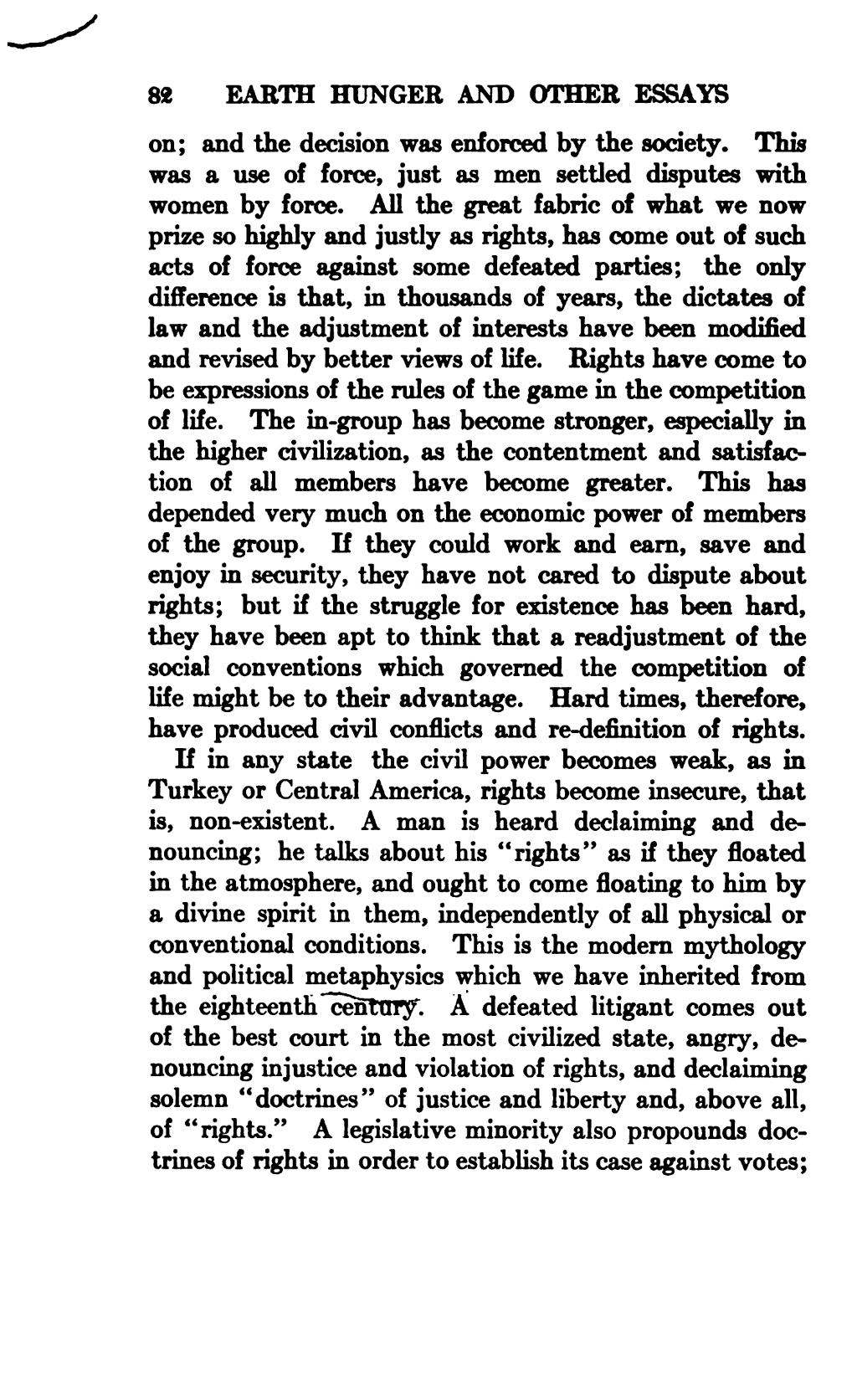on; and the decision was enforced by the society. This was a use of force, just as men settled disputes with women by force. All the great fabric of what we now prize so highly and justly as rights, has come out of such acts of force against some defeated parties; the only difference is that, in thousands of years, the dictates of law and the adjustment of interests have been modified and revised by better views of life. Rights have come to be expressions of the rules of the game in the competition of life. The in-group has become stronger, especially in the higher civilization, as the contentment and satisfaction of all members have become greater. This has depended very much on the economic power of members of the group. If they could work and earn, save and enjoy in security, they have not cared to dispute about rights; but if the struggle for existence has been hard, they have been apt to think that a readjustment of the social conventions which governed the competition of life might be to their advantage. Hard times, therefore, have produced civil conflicts and re-definition of rights.
If in any state the civil power becomes weak, as in Turkey or Central America, rights become insecure, that is, non-existent. A man is heard declaiming and denouncing; he talks about his "rights" as if they floated in the atmosphere, and ought to come floating to him by a divine spirit in them, independently of all physical or conventional conditions. This is the modern mythology and political metaphysics which we have inherited from the eighteenth century. A defeated litigant comes out of the best court in the most civilized state, angry, denouncing injustice and violation of rights, and declaiming solemn "doctrines" of justice and liberty and, above all, of "rights." A legislative minority also propounds doctrines of rights in order to establish its case against votes;
